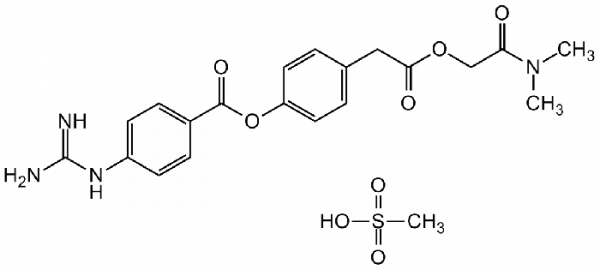If you have any questions, please use our Contact Form.
You can also order by e-mail: info@biomol.com
Larger quantity required? Request bulk
You can also order by e-mail: info@biomol.com
Larger quantity required? Request bulk
Viewed

| Keywords: | FOY 305, Foipan, FOY-S 980, Camostat mesilate |
| Supplier: | AdipoGen Life Sciences |
| Supplier-Nr: | AG-CR1-3716 |
Properties
| Application: | Antiinflammatory, Serine protease inhibitor |
| MW: | 494.5 D |
| Formula: | C20H22N4O5 . CH4O3S |
| Purity: | >=98% (HPLC) |
| Format: | Solid |
Database Information
| CAS : | 59721-29-8| Matching products |
Handling & Safety
| Storage: | -20°C |
| Shipping: | +20°C (International: +20°C) |
| Signal Word: | Warning |
| GHS Hazard Pictograms: |
|
| H Phrases: | H319, H302+H312+H332, H410 |
| P Phrases: | P261, P264, P270, P271, P273, P280, P321, P330, P391, P301+P312, P302+P352, P304+P340, P305+P351+P338, P337+P313, P501 |
